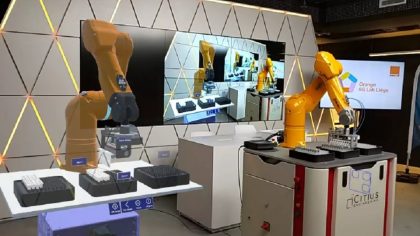IoT: new energy-efficient chips could expand the scope of artificial intelligence in edge computing
• The excessive power consumption of GPUs in artificial intelligence applications has encouraged researchers to develop a novel chip architecture that could pave the way for the widespread adoption of edge AI.
• The new chip, which uses ferroelectric field effect transistor (FeFET) cells, requires 44 times less energy than traditional designs to perform an equivalent number of operations.
• Chips of this kind may later be adapted for cloud computing, but in the near term the main areas of application for the new architecture are in edge computing for transport, industry and IoT.
Read the article
• The new chip, which uses ferroelectric field effect transistor (FeFET) cells, requires 44 times less energy than traditional designs to perform an equivalent number of operations.
• Chips of this kind may later be adapted for cloud computing, but in the near term the main areas of application for the new architecture are in edge computing for transport, industry and IoT.


Competition in the race for AI shakes up the world of semiconductors
Read the article
FoodProX uses machine learning to detect ultra-processed food
Read the article

IoT and micromobility to benefit from smarter more sustainable batteries
Read the article

